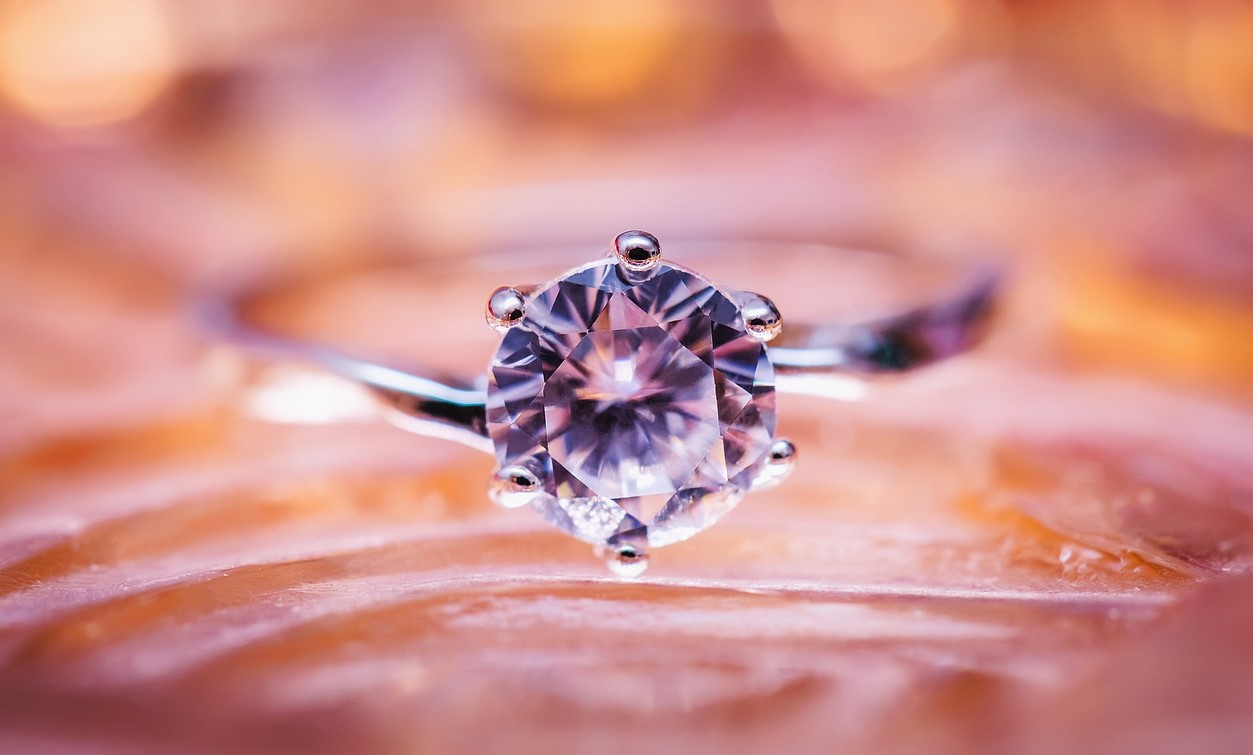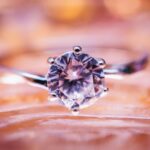Diamonds: Certified vs Uncertified

Overview
When it comes to investing in diamond jewellery, you want to ensure you're getting exactly what you pay for. If you’ve done any research you will have most likely surmised that opting for a certified diamond is the best option. But many customers may not be clear about what diamond certification is and why they need it.
At Hatton Jewellers, we understand that a piece of diamond jewellery is more than just a fashion statement, it’s a significant investment. To assist you with your next purchase, this blog uncovers the advantages of certified diamonds vs uncertified diamonds.
What Are Certified Diamonds?
Due to being such a sought-after stone, many diamonds are verified by a recognised gemological laboratory. This is an extensive process that is carried out with extreme care and attention. Each diamond is weighed with an electronic micro-balance that captures its weight to the fifth decimal place - to ensure as much precision as possible.
From here, each diamond is graded, determining whether the gemstone in question is a natural diamond, a lab-grown diamond, or contains any non-diamond material. Upon successful grading, a certificate of authenticity is issued as evidence of the diamond’s quality.
What are the 4Cs?
There are several elements that determine the quality of a diamond. These are known as The 4Cs. This then determines the overall value of the diamond.
1. Cut
The cut is often mistaken as the shape of the diamond but it actually refers to how the diamond is portioned and how it interacts with light to create a sparkling appearance. There are five different categories that determine the cut of a diamond, ranging from excellent to poor.
2. Colour
The colour quality of a diamond has an immense impact on its market value - with the most expensive stones appearing completely colourless. The quality of a diamond’s colour is determined by use of a lettered grading system, with D-F being the highest grades and S-Z having easily noticeable tinting. Find out more about diamond colour in our diamond guide.
3. Carat
The carat refers to the weight of the diamond, with 1 carat defined as 200 milligrams. Theoretically, the higher the carat, the higher the weight of the diamond - which is why so many confuse carat as being the size of a diamond.
4. Clarity
As natural diamonds are formed over thousands of years beneath the ground, imperfections can easily penetrate the body of the stone. These can range from miniscule indistinguishable specks, to large inclusions, all of which can alter the way in which the clarity is graded. While it’s rare to find a diamond that is completely perfect, the fewer blemishes on a stone, the higher its clarity rating will be, with flawless (FL) being the highest clarity grading.
For further information on the 4Cs, check out our blog post on the 4Cs of Diamond Quality.
What Are Uncertified Diamonds?
Uncertified diamonds are simply ones that haven’t been lab graded. While it can be tempting to opt for uncertified diamonds thanks to their cheaper price point, there’s a reason you pay less for these gemstones. Often, it can be expensive to have diamonds certified, which means that when a customer purchases a certified diamond, they will likely end up paying a chunk of this cost.
Uncertified diamonds have no official proof of authenticity which means you have no evidence to suggest that your diamond is of the quality stated. You should always buy certified diamonds, especially when gifting jewellery!
What Are the Benefits of Certified Diamonds?
Certification immediately adds value to a diamond as it has been fully lab graded by a recognised laboratory - with a certificate of authenticity to prove its stated value. This gives you peace of mind that your purchase is genuine and legitimate.
Here are just a few of the reasons why it’s better to opt for a certified diamond:
1. Confidence in Quality
Whether you’re popping that all-important question or purchasing a special gift for a loved one, certification adds deeper sentiment and gives you peace of mind that your diamond is 100% authentic.
2. Retains Value
If you ever decide to sell your diamond, a certificate of authentication will prove it’s of the value stated, helping you to secure a worthy price for your treasured investment.
3. Insurance Cover
If your diamond is ever stolen, insurers will require certification as evidence of authenticity in order to ascertain its value when calculating a potential payout. Having this official documentation to hand means you have peace of mind if the worst happens.
4. Higher Quality
Any diamond with proof of authenticity is always likely to be of a much higher quality, as it’s had its properties carefully examined and confirmed by an official body, such as GIA or WGI.
Should You Ever Buy Uncertified Diamonds?
There may be some occasions in which you’ll wear a piece of jewellery where the focus won’t necessarily be on the diamonds. If you see a stunning piece that doesn’t include a certificate of authenticity, you may be tempted to buy it anyway. If the diamonds in the piece are small and you’re not planning on using the piece as an investment with a view to selling it later down the line, it’s not as important for the diamonds to be certified. However, we would always recommend choosing a reputable jeweller who includes a certificate of authenticity as standard with every diamond purchase.
Is it Safe to Purchase Uncertified Diamonds?
In our expert opinion, when investing in a piece of diamond jewellery, we would always advise that it’s safer to purchase certified diamonds for the above reasons. Any reputable jeweller should provide certification on any diamond pieces, such as engagement rings, so you can be assured that your purchase is legitimate. At Hatton Jewellers, all our products come with a free certificate of authenticity and official insurance valuation so you can shop with confidence. This gives you total reassurance that the piece of jewellery you are purchasing is of stated precious metal purity and all gemstones are natural unless otherwise stated.
If you’d like more information on choosing a reputable jeweller, check out our blog on How to Spot a Trustworthy Online Jeweller. Alternatively, have a read of our handy user guides, where you can find lots of helpful information on diamond jewellery.


